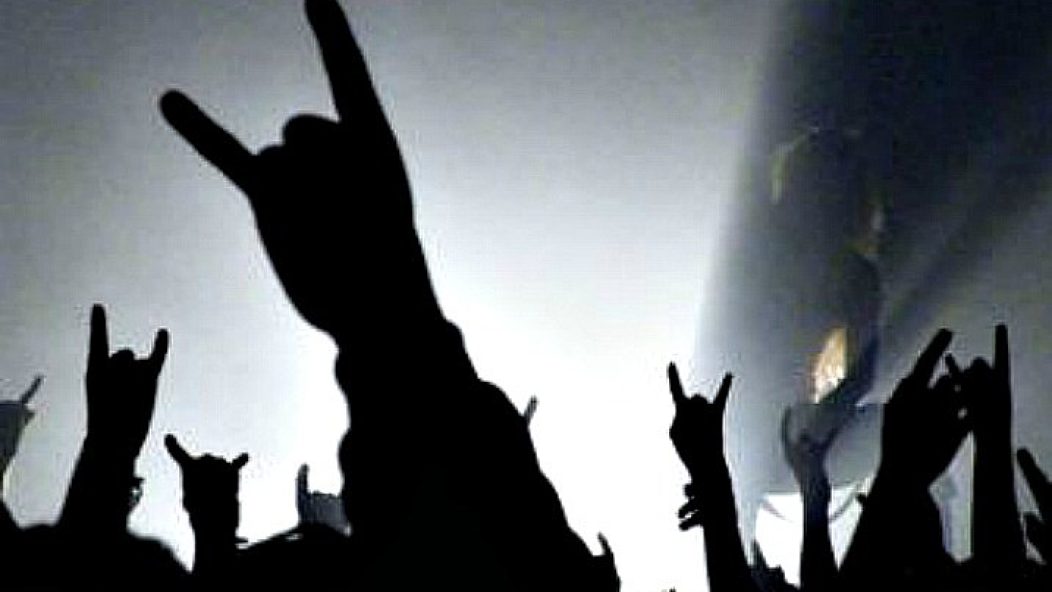
We asked artist security managers how to stay safe in a crisis situation
After a reported lone gunman opened fire on a Las Vegas music festival crowd Sunday night, Oct. 1, killing at least 59 people and injuring more than 500, concert and festival safety is again a topic of major concern for music fans, performers and event organizers. What can be done to protect live music attendees from a shooting? Is there anything concertgoers can do to assure their safety in a large crowd? These are just some of the questions on the minds of live music lovers after the fatal attack.
Following the tragic event that took place, AP spoke to artist security professionals Matthew Yanni and Joey Perez, who have worked with artists including Andy Black, Avenged Sevenfold and Lady Gaga, about security and what needs to be done to ensure fans are safe—especially in situations like last night's tragic happening in Las Vegas.
“There are always emergency procedures planned in advance with security directors of tours, festivals or large public gatherings with the promoters and venues,” Perez says. “The problem with Vegas was that this shooting was the first of its kind. A shooter with open range and unlimited time to do what he wanted and thousands and thousands of targets. Police and security couldn’t stop the carnage. And emergency plans go out the window because the best thing to do is lay there and not give the shooter a target.”
The shooting was perpetrated by 64-year-old Stephen Paddock from an upper floor of the Mandalay Bay hotel, overlooking the crowd of 22,000 people in attendance at the nearby Route 91 Harvest Festival. The shooter was not technically in attendance at the event, instead unleashing the deadly barrage from a vantage point above the gathering.
Yanni and Perez talked more about concert safety—for fans and venues alike. Here are their best tips for what to do in an emergency situation:
Know where the exits are
YANNI: If you’ve been to the venue, you’re obviously familiar with it. If you haven’t, when you get there, just make yourself aware of where the exits are, where security is and know if there are police. Just be aware.
Take cover if you can’t find an exit
YANNI: We’ll go back to last night: I personally would’ve gotten behind cover. You’re not going to outrun a bullet. Anything you can use to cover yourself can help in the least bit. But if you’re in a situation and you can get to an exit, then I’d recommend that—it’s much more common in [smaller] venues. But if you can’t get to an exit in a bigger venue, take cover. Find something to hide behind. Protect yourself.
Try to stay focused
PEREZ: What fans should do in case of an emergency is to try to remain calm. Any fan coming into any music venue should always be aware of escape routes and an easy way to exit venues whether it be a shooting, fire or other disasters. Always be vigilant and report any suspicious activities.
Always be aware of your surroundings
PEREZ: It’s sad to say, but there isn’t any one emergency procedure to follow because every tragedy is different. The only thing that can be told to concertgoers is be aware of surroundings and exits. And don’t be afraid to report anything that doesn’t seem right.
Stick with your friends
YANNI: If you’re with a group of friends, stick with them. Don’t ever run out on your own. I do the same thing when I go to a venue. I always stick with a close group, and I never distance myself from them.
While there are precautionary measures fans can take to protect themselves in an active shooter situation, Yanni believes that it all starts with the security team as soon as fans arrive at the venue.
“They’re looking to get kids in there as fast as possible. They’re not looking at it as a safety risk,” Yanni explains. “Anyone that gets into the building is their responsibility, so I think that’s the biggest thing. They need to be aware of what’s coming into the building because there’s no going back once it’s in the building.”
And the tragic events in Vegas will only continue to shape the world of personal security and how venues work to keep fans safe.
“Doing shows all over the world, we plan for a lot of stuff and think we’ve seen everything,” Perez says. “But then something like Vegas changes the game, and our conventional thinking goes out the door and makes us rethink procedures.”








